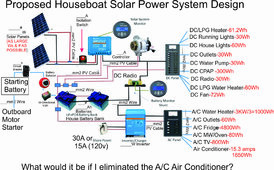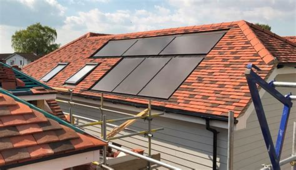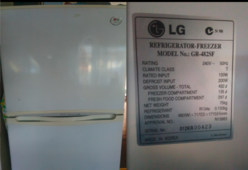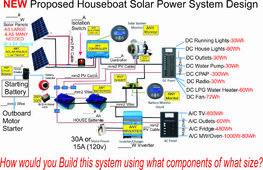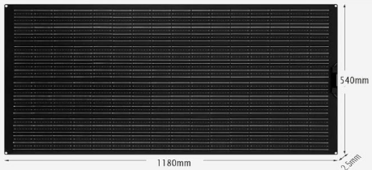Hillbilly2
New Member
Hello, I am brand new to this forum and hope that members will be able to help me learn to design, select components, then install Solar panels on my, just purchased, very tiny 28” Landau Pontoon Houseboat. As the boat must be moored, most often, to a buoy with no electrical hook up available, I want to design and install a system that will provide enough, 110v and 12v juice to power it’s old and future Solar driven equipment. As the attached rough diagram reflects, I want to install a number of pieces of electrical power equipment, which will allow me to use the boat on weekends with its bank of house batteries charged when I arrive. I’m looking for guidance on how to design the boat’s complete electrical system, recommendations on the best, most appropriate and size products to purchase, and instruction/hints on how to best install/adjust them into a well functioning, off grid power system. I have tried to estimate the DC and AC power requirements to allow selection of type and size/capacity of the system’s electrical components. I don’t really need a roof Air Conditioner, but want to determine how much it will cost to have that capacity. I saw that Amazon is offering a 1,600W flexible panel kit for $190 which got me thinking about using an air conditioner off-grid. I have also included both an DC/LPG and a small inline A/C hot water heater because I haven’t decided which way to go on that
Please look at the design of my Solar system and tell me what I should change due to my mistakes/lack of understanding of Solar power, and fill in its blanks on component capacities, wire size requirements, and your recommended component brands. Any other advice/guidance you can provide will really be appreciated as I know almost nothing about employing Solar panels.
Feel free to call me, Jim Price (Hillbilly2) at (859) 351-3215 or email me at jimprice1559@gmail.com if you need to connect with me. Thanks for taking the time to look my design over. Jim
Please look at the design of my Solar system and tell me what I should change due to my mistakes/lack of understanding of Solar power, and fill in its blanks on component capacities, wire size requirements, and your recommended component brands. Any other advice/guidance you can provide will really be appreciated as I know almost nothing about employing Solar panels.
Feel free to call me, Jim Price (Hillbilly2) at (859) 351-3215 or email me at jimprice1559@gmail.com if you need to connect with me. Thanks for taking the time to look my design over. Jim



